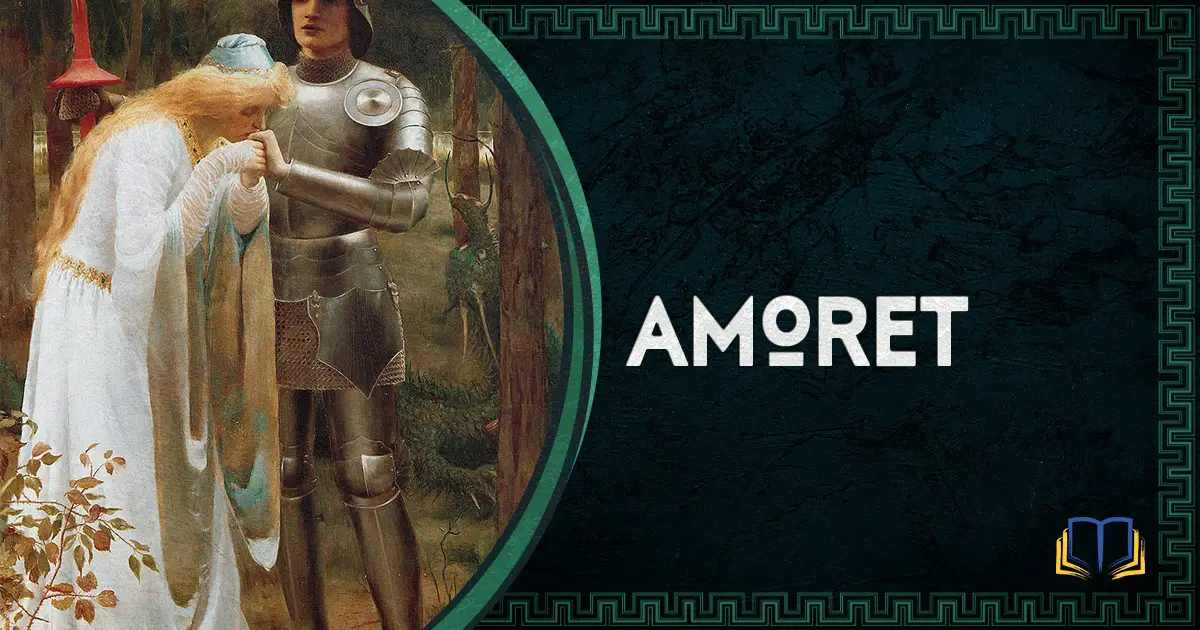Amoret is a character that first appears in book 3 of book 3 of Edmund Spenser’s The Faerie Queene.
Amoret’s Birth
Amoret is the daughter of Chrysogonee, who was impregnated by sunlight, and eventually gave birth to Amoret and Belphoebe, twin sisters.
Eventually, Amoret was taken by a goddess and raised in Faerie Land.
Sadly, the rest of her story is much more tragic.
The Tragedy of Amoret
Amoret is eventually taken by Scudamore out of her home, and though this may seem undesirable, the two form a relationship.
But that relationship is short-lived, because Amoret is eventually taken by Busirane and locked up in a castle. There, she endures extremely horrific torment.
Busirane is a symbol of unlawful love, and the way he treats Amoret is a analogy for rape. To start, he pierces her chest with a steel pin, then opens up a great wound in her chest and takes out her heart. Following that, he uses her blood to paint strange symbols to make her love him.
The physical act of writing in Amoret’s blood may be a critique of other poets that over-sexualize women in their poetry. It is a parallel with today’s criticism of Hollywood and other media for over-objectifying women as well.
Eventually, Amoret is rescued by Britomart, her wounds are healed, and she is safely escorted out of the castle.
What Does Amoret Represent?
Amoret’s name means “love”, but her tragedy suggests something more solemn.
Indeed, love is rarely without pain and suffering, and this may be what Amoret represents. She may also simply be a tragic example of what can happen when men resort to their baser instincts, and how chastity (a.k.a. Britomart) can help redeem these issues.
See our complete list of Arthurian characters for more entries like this one.
Arthurian Bibliography
- Norris Lacy, Geoffrey Ashe, Debra Mancoff – The Arthurian Handbook (Second Edition)
- Alan Lupack – The Oxford Guide to Arthurian Literature and Legend
- Ronan Coghlan – The Illustrated Encyclopaedia of Arthurian Legends
- Anonymous – Lancelot-Grail, the French Vulgate
- Sir Thomas Malory – Le Morte d’Arthur
See also my ever-expanding list of primary and secondary sources.



